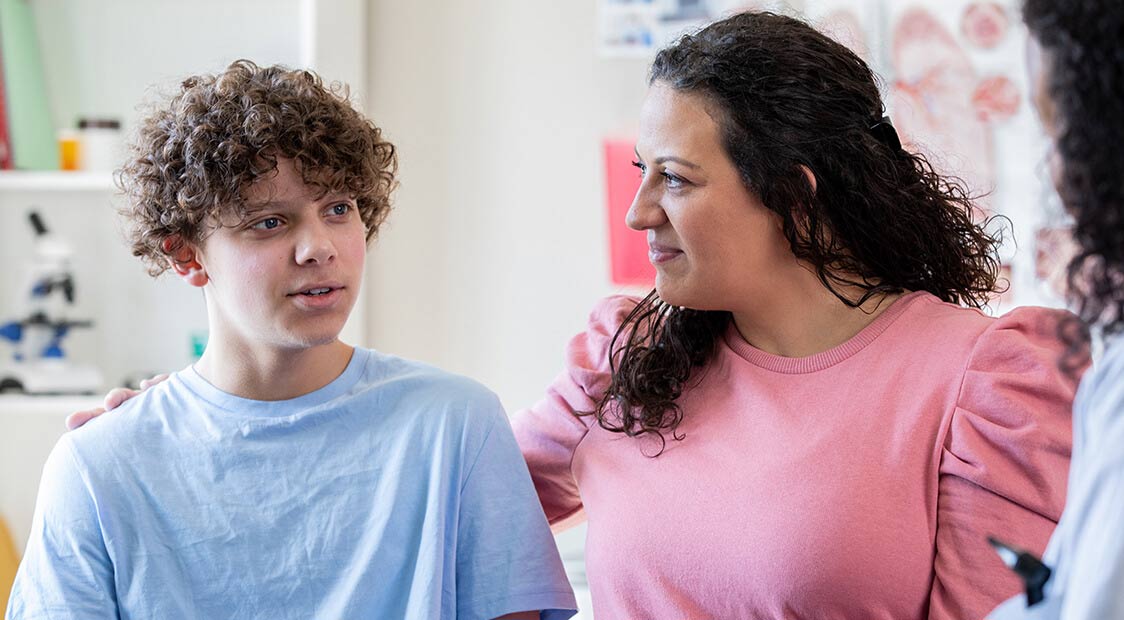Clinical studies are vital in advancing cancer treatments
By Magory Dolcy
Share:

According to the American Cancer Society, clinical studies or clinical trials review new drugs, procedures and other treatments in people to study their efficacy and make improvements to treatment modules. Doctors and scientists use clinical research trials to develop new treatments for serious diseases such as cancer. At the UF Health Proton Therapy Institute, we hope that clinical research will put proton therapy at the forefront of cancer treatment.
Proton therapy, also called proton beam therapy or proton radiation, delivers a very precise dose of radiation to your tumor, destroying cancer cells with little damage to surrounding healthy tissue. The Institute was the first proton therapy center to open in the Southeast in 2006 and now treats more than 20 types of cancer in five state-of-the-art treatment rooms, equipped with the latest in proton therapy radiation including pencil beam scanning. We serve as a center for multidisciplinary research with 350 published articles involving all interests that touch cancer and its treatment.
A Stigma Around Clinical Studies
Patients deciding on cancer treatment may be unsure about the processes and benefits of clinical research trials and are sometimes reluctant to participate in a clinical trial or clinical study. Some people are untrusting or unsure if there are pure intentions when it comes to carrying out clinical research.
Many people don’t trust clinical research because of mistakes some researchers have made in the past. Today, there are vast improvements in protocol, regulations and monitoring clinical studies. Strides have been made to make clinical research more transparent, too. In doing so, potential participants can feel comfortable that many steps have been taken to ensure that the research is being carried out in an ethical manner and that patients have the choice to participate or not. People should never be made to feel that they do not have a choice of whether to participate in clinical research. The decision to participate in a clinical trial should also be guided by your medical team and caregivers.
Improving the Clinical Trials Process
Proper consent is important when it comes to signing up for participation in a clinical study. Before you can give consent, you should always be fully informed about all aspects of the research, along with having the opportunity to have all your questions answered.
The American Cancer Society has a list of suggested questions to discuss with your medical team when you’re deciding to enroll in a clinical study or not.
Things to Consider:
- How does this change my treatment plan?
- Does participating in this study change who is treating me?
- What are the risks, if any?
- Will my information be kept confidential?
- How much will it cost?
- Will my insurance cover a clinical trial?
- How long is the clinical trial?
- Will I be provided additional medical care if needed?
You may also ask about past clinical trials completed that relate to your cancer type or treatment plan. Get family or caregivers involved; ask them if they have any concerns or questions for your medical team. If you’re still unsure, seek out a second medical opinion.
Clinical research is a space of collaboration between the organization facilitating the research and the participants. Through this collaboration, the goal is to find an outcome that is beneficial to patients diagnosed with the conditions that are being researched and persons diagnosed with the same disease in the future. The studies or trials are an excellent method for improving the ways physicians treat cancer.
Clinical Studies Advance Cancer Treatment
Thanks to clinical research trials, advanced technologies like proton beam therapy are now able to offer cancer patients radiation treatment that may be more effective for some cancers and offers fewer side effects. This means that people undergoing proton radiation can continue to live their lives and care for their families during and after cancer treatment.
At the UF Health Proton Therapy Institute, clinical trials are a pillar of our commitment to advancing cancer treatment based on research. The Institute is a part of the University of Florida Health Cancer Center which recently became a National Cancer Institute (NCI) Designated Cancer Center. We are one of a select group of prestigious cancer programs across the country to be designated as such.
The designation signifies that the UF Health Cancer Center has met rigorous standards in its leading-edge cancer research programs, advanced scientific leadership, distinctive training programs and forward-thinking community outreach.
At a time when Florida has the nation’s second-highest cancer burden, the funding will provide more resources for innovative clinical trials and increase access to cancer care. Being part of the NCI network means patients can be assured of access to the most advanced cancer treatments and innovation — backed by research conducted by dedicated scientists.
The future of proton therapy depends heavily on clinical research over the coming years. That’s why our primary mission is to conduct clinical research to improve the effectiveness and availability of proton therapy. Learn more about the clinical trials now open at the Institute.
So, you may still ask, why clinical research? But I dare you to ask yourself, why not clinical research? Be at the forefront of advancing cancer treatment.


